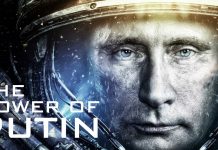In the early spring of 2012, Vladimir Putin reclaimed his position as Russia’s president. To his supporters, the news was a cause for celebration. They adored the man they saw as a savior, an intrepid, action-oriented leader who had rescued Russia from the turbulence of the Yeltsin years and restored its global standing. The cheers of supporters at a government rally in Moscow painted a portrait of a nation united in support of their heroic leader.
However, this rosy picture was not representative of the entire Russian populace. As Putin’s supporters celebrated his victory, dissenters converged elsewhere in Moscow under the vigilant gaze of state security and police. These critics argued that Putin’s lengthy tenure in Russian politics had cast the nation in a negative light, synonymous with cronyism and corruption.
For these opponents, Putin’s reign was one where inner circles exploited their positions for personal gain, hijacking Russia’s governance for their own benefits. These claims insinuate a profound issue, an ominous allegation that Russia’s political heavyweight, Vladimir Putin, had accumulated a covert multi-billion-dollar fortune.
The supposition of Putin’s secret wealth has piqued international interest. Rumors swirl, speculation is rife, but proof remains elusive. Pinning down the truth in a world known for its hidden machinations, obscure connections, and clandestine dealings is a daunting task. Yet, it’s crucial to cast a light on these allegations to understand the realities of Russia’s political landscape under Putin.
Putin’s public persona, the horse-riding, judo-practicing man of action, stands in sharp contrast to the secrecy that shrouds his financial affairs. If the claims of his colossal fortune hold water, then the dissonance between his projected image and the alleged reality is stark. This brings to the fore the question of wealth and power in Russia and how the two intermingle under Putin’s leadership.
The wealth of a country’s leader can often be a point of contention. While considerable fortunes may be justifiable in some cases, particularly where leaders have amassed wealth prior to their political careers, the emergence of inexplicably large fortunes during a leader’s tenure invariably raises eyebrows. It becomes particularly concerning when such wealth appears cloaked in secrecy, as the allegations surrounding Putin suggest.
However, the narrative of Putin’s wealth extends beyond his personal fortunes. It becomes a symbol of a broader issue, reflecting the alleged cronyism and corruption permeating Russia’s political landscape. This story encapsulates the criticism of Putin’s administration, representing the grievances of those who believe Russia has been manipulated for the personal gain of a select few.
Regardless of where the truth lies, the speculations around Putin’s wealth expose a deeply ingrained issue: the complex dynamics of wealth and power in Putin’s Russia. The investigation into these claims, therefore, is not just about tracing Putin’s wealth but about understanding the dynamics of his presidency, his image, and the perception of Russia under his rule.
While the truth of Putin’s financial status remains shrouded in mystery, the dialogue surrounding it serves as a mirror reflecting the complex landscape of power and wealth in contemporary Russia. As Putin’s new term begins, these conversations will continue to play a crucial role in shaping global understanding of Russia and its enigmatic leader.

































